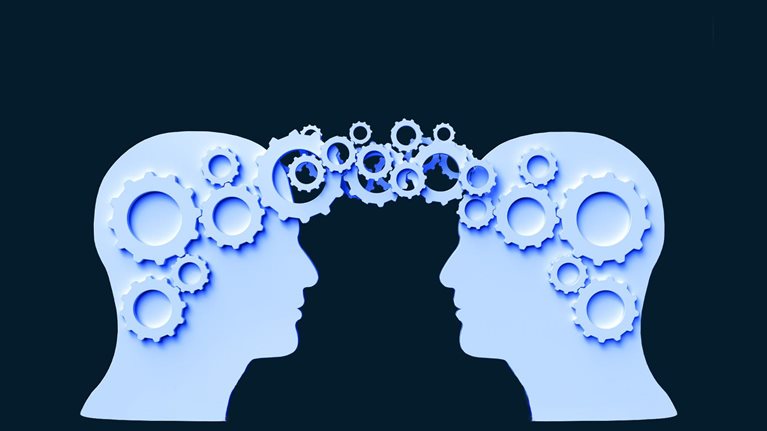
Davos is a modest ski resort near Zürich, Switzerland. But that isn’t why it’s famous. Every January, Davos hosts the annual meeting of the World Economic Forum (WEF). A highly curated group of delegates from global business, government, civil society, media, and academia converge on this Swiss town to address the most pressing issues of the day—and ultimately develop solutions.
In 2026, the annual meeting will be centered on fostering a spirit of dialogue. We are living in a time of accelerating complexity, rising fragmentation, and exponential innovation. In this context, the imperative to broaden our perspectives, listen to one another, and be challenged on our views could not be more critical to rebuilding trust and shaping a better future. The delegates of Davos 2026 will explore a range of themes: for example, cooperation in a more contested world, deploying innovation responsibly at scale, unlocking new sources of growth, building prosperity within planetary boundaries, and investing better in people in the age of AI.
For more on WEF, the annual meeting in Davos, and insights on what lies ahead, read on.
What is the World Economic Forum?
Headquartered in Geneva, Switzerland, WEF is an international not-for-profit organization focused on promoting cooperation between the public and private sectors. Founded in 1971, WEF seeks to foster a spirit of collaborative entrepreneurship to address global issues and shape governmental, industry, and social agendas.
In 2020, WEF issued a new Davos Manifesto which formally established that the organization is guided by stakeholder capitalism. This concept posits that a corporation should deliver value not only to shareholders but also to all those who have a stake in the destiny of the company, including employees, society, and the planet. Its goals include a commitment to “improve the state of the world.”1
WEF partners with many international organizations and corporations to run projects addressing global concerns. This year, collaborations focus on reimagining growth, transforming industries in the wake of advancing technology, reskilling and upskilling workers, safeguarding the planet, and rebuilding trust within and among societies.
Learn more about McKinsey’s collaboration with the World Economic Forum here.
What is the Davos agenda?
Davos isn’t just about the keynote addresses. The meeting is also famous for the networking and social interactions that take place in corridors, side rooms, hotel suites, and restaurants across the Alpine town. “For me,” says McKinsey Senior Partner Kate Smaje, “Davos is all about making those unusual connections, where you get to talk to people who are doing very different things than you and being able to connect those dots and start to think about things in different ways. For me, it’s never about a session; it’s often about those coincidental meetings that happen in the margins of the sessions.”
Some 2,500 delegates and hundreds of others gather in Davos during this period, making it perhaps the largest assembly of global decision-makers all year. For McKinsey veterans of the Davos meeting, connecting with clients takes center stage at the conference. For McKinsey Senior Partner Tracy Francis, the value of the Davos meeting is in “the human interaction of a multitude of different types of entities—start-ups, nonprofits, governmental organizations, businesses. There’s a lot of talk about a new world order, but I do think that just being together in person and exchanging ideas increases connectivity.”

Looking for direct answers to other complex questions?
Who attends Davos?
In 2025, the annual meeting welcomed delegates from more than 100 governments around the world, from all major international organizations, and from WEF’s 1,000 partner companies, as well as civil-society leaders, up-and-coming leaders, the foremost experts in a range of areas, social entrepreneurs, and members of the media.
Leaders who addressed the meeting included heads of state and government officials such as Cyril Ramaphosa (South Africa), Olaf Scholz (Germany), Ursula von der Leyen (European Commission), and Volodymyr Zelensky (Ukraine); US President Donald Trump delivered a virtual address. Other prominent figures in attendance were Ding Xuexiang (China), Lawrence Wong (Singapore), and Javier Milei (Argentina).
Approximately 1,000 corporations are members of WEF, and each sends a small number of key delegates to the meeting in Davos based on its membership tier. In 2025, business leaders including Satya Nadella (Microsoft) and Jamie Dimon (JPMorgan Chase) delivered addresses. Official attendance is by invitation only.
What’s on the Davos agenda for 2026?
This year, the theme for Davos is “A Spirit of Dialogue.” The program will be oriented around five interconnected priorities:
- Cooperation in a contested world. Our era is increasingly defined by contested norms, shifting alliances, and the erosion of trust. Organizations of all types must continuously adapt to a highly complex set of geopolitical and economic dynamics to compete in this highly fluid environment.
- Deploying innovation responsibly and at scale. AI is reshaping how industries compete and create value and is projected to add over $15 trillion to global GDP by 2030. Realizing this potential will require responsible deployment and governance, as well as sustained investment in frontier technologies.
- Unlocking new sources of growth. Amid trade tensions and policy uncertainty, global growth is projected to be just 3.1 percent for 2026. To surmount the coming challenges, economies will need to withstand near-term shocks while harnessing innovation to boost long-term productivity.
- Invest better in people. Twenty-two percent of today’s jobs worldwide will change in just the next five years, driven particularly by AI. Investing in reskilling and upskilling will be crucial to achieving a resilient workforce.
- Building prosperity within planetary boundaries. Infrastructure, food systems, and natural ecosystems are all affected by climate change. Transitioning to nature-positive business models could unlock $10 trillion annually by 2030.
When is Davos 2026?
The meeting in Davos will take place from January 19 to 23, 2026.
What happened at Davos in 2025?
Last year’s meeting was centered on collaboration in the intelligent age and focused on identifying new sources of growth in the global economy, transforming industries in the intelligent age, investing in human development, building on actions to address climate change, and collaborating on solutions to both international and regional problems. “The commonality of themes across my conversations was remarkable,” says McKinsey Senior Partner Eric Kutcher. “There was real consensus around cautious optimism, the importance of AI, and the unknown of geopolitics in the wake of what has been the greatest year of elections in recent past.”
McKinsey’s partnership with WEF for each year’s Davos meeting includes events that align with shared goals across geographies and institutions. In 2025, McKinsey’s knowledge collaborations with WEF were intended to foster global cooperation for sustainable, inclusive growth. Shifting geopolitical dynamics and the ongoing advancement of technologies were critical topics at Davos in 2025, where delegates were also focused on the calculus between decarbonization and value creation.
What impact does Davos have?
WEF describes itself as a new kind of institution, with the adaptability, entrepreneurialism, and stakeholder trust necessary to make it a platform with the power to effect change. The upheavals of recent years have, to many, underscored the organization’s ongoing value.
To keep up to date with McKinsey’s Davos coverage, visit McKinsey and WEF. Also, search for #davosagenda on social media and look out for live events with McKinsey experts in the time leading up to the January meeting. And stay tuned for Davos updates in your inbox.
Learn more about McKinsey’s collaboration with the World Economic Forum here.
This article was updated in November 2025; it was originally published in January 2023.



